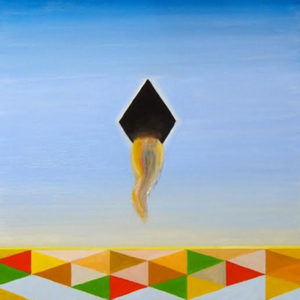 Self-reliant and a critical thinker wanting to redefine and reform the African-American mind.
Self-reliant and a critical thinker wanting to redefine and reform the African-American mind.
This is how Cubs The Poet describes Cubs The Poet on Cubs The Poet’s Bandcamp page. Born Christian Davenport, the rapper’s story, according to a 2013 article in this very paper, goes a little like this: With one year left before completing a degree in psychology at Dillard University in New Orleans, he bailed, returning to Frederick to pursue his dream of being a poet. He gave himself six months and if he couldn’t work out his own financial stability, he said he would return to school.
College degree or not, he still managed to release August’s “The African Genius,” a seven-song mixtape of sorts that is as vague as it is promising, as lazy as it is frustrating. With only one song eclipsing the three-minute mark, each track feels like little more than a tease, which is fine in the mixtape world, but as for it being anything remotely close to a proper showcase for a self-reliant, critical-thinking mind …
… Well, that’s another story.
Perhaps the most revealing track is the first, “Waiting For.” Anchored by a solid hook — “Shootin’ in the dark/ That’s what it feels like/ Even though I’m left-handed/ It never feels right” — it’s the only time throughout all of “The African Genius” that Cubs seems to willingly stand front and center. His two verses are serviceable, and the laid-back beat fits his flow nicely, but the track’s lone achievement is making the listener beg for more. Which is a problem, of course, if that more doesn’t come.
And it doesn’t.
“The Stepover” samples Allen Iverson’s reflection on his near-legendary decision to literally step over Los Angeles Laker Tyronn Lue after nailing a long-distance jump shot in Game 1 of the 2001 NBA Finals. A fun way for hoop-heads to remember The Answer’s glare at his opponent? Of course. A true indication of how skilled or unskilled Cubs The Poet might be? Not a chance. His lone verse runs 31 seconds. The rest of the track is the same snippet of dialogue on a loop. “Schoolboy Q became the man of the year/ So I dropped out of school to be the man every year,” Cubs proclaims, yet he does little to back it up.
Ditto for “Janet Jackson” and “Be a Man,” two songs bogged down by movie quotes and spliced-in dialogue. The former utilizes Chris Tucker’s Smokey from 1995’s “Friday,” while the latter goes all “Forrest Gump” on it. Over. And over. And over again. Still, it’s the better of the two, if only for its dual movement approach. Split into two sections, the first half succeeds with a retrofitted hip-hop groove accentuated by the jazzy horns that actually give the song a bit of much-needed atmosphere. It’s a cool throwback that grants the production credibility, even if the beat is forced to lay buried underneath Jenny reprimanding Forrest.
The most disappointing moment comes in the form of “Sallie May Not.” A clear attempt at a made-for-pop-radio slow jam (as the kids say), it feels generic, an almost too-blatant stretch for stardom that recalls the most uninteresting side of someone like J. Cole. Even worse is its willingness to fall into hip-hop cliches. “I love them and I like them and we rolled up and we lightin,’” Cubs explains before leaning far too hard and far too often on his payoff lines: “Everything has changed/ Everything has changed” and “I no longer care/ I’m no longer there.” For someone who says he wants to redefine and reform the African-American mind, such locution comes off as lethargic and small-minded.
And truth be told, that’s the unmistakable conflict of “The African Genius.” It’s just not enough. If you’re going to advertise yourself as a critical thinker and drop out of school to be a professional poet (whatever that even means anymore), then you simply have to be more thought-provoking than Cubs The Poet is here, even when he’s at his best. Sure, he shows glimpses of potential if you look hard enough, but none of those offset the distance between expectation and reality.
Or, perhaps more tellingly, none of those glimpses ever seem to reconcile the difference between Christian Davenport The Person and Cubs The Poet.
** 2 STARS OUT OF 2 **
